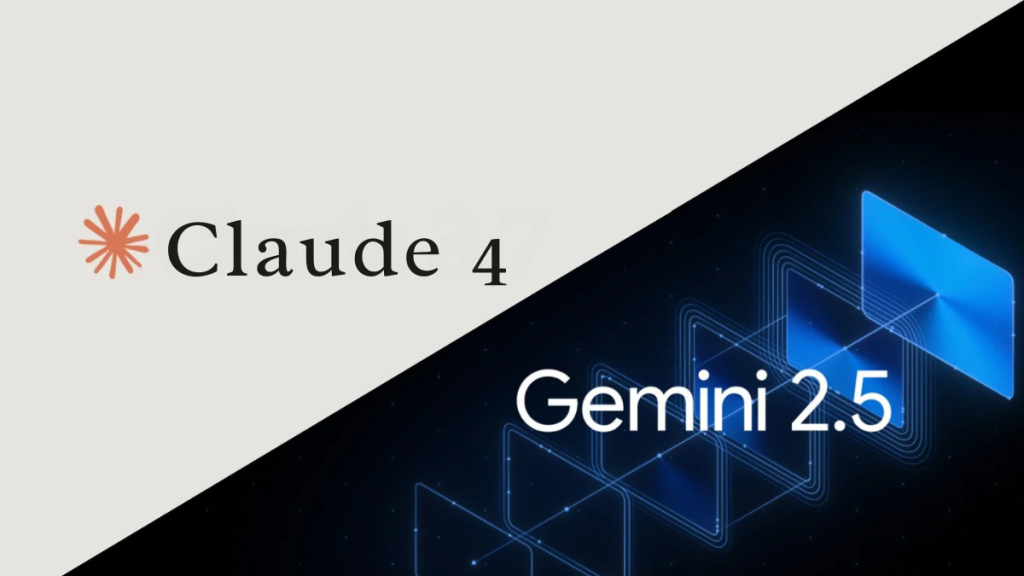My Hands-On Experience with Both APIs
Contents
If you’re a developer, tech founder, or even a curious builder like me, you’ve probably heard all the buzz around Claude Sonnet 4 API and Gemini 2.5 Pro API. I’ve personally spent the past few weeks testing both in real projects from coding assistant tasks to visual data interpretation.
Honestly, it’s not about which one is “cooler” or newer, it’s about which one actually performs when you’re under real-world pressure.
In this blog, I’ll walk you through my experience using both APIs. I’ll compare reasoning, code output, pricing, developer tools, and even little things like memory and instruction following. If you’re confused about which API suits your work best, this breakdown will help you decide.
Claude Sonnet 4 vs Gemini 2.5 Pro – Quick Snapshot
Let’s kick off with a side-by-side view based on my direct use:
| Feature | Claude Sonnet 4 API | Gemini 2.5 Pro API |
| Code generation | Accurate & Fast | Good, but sometimes inconsistent |
| Reasoning power | Top-tier | Still catching up |
| Visual understanding | Moderate | Excellent |
| Long context memory | Impressive | Limited |
| Agentic tool use | Built-in support | Limited |
| Pricing at scale | Affordable | Expensive for high usage |
| SDK & Dev Tools | Claude Code SDK, IDE support | Lacking |
How They Performed in My Projects
Claude Sonnet 4 API: Surprisingly Developer-Centric
When I integrated Claude Sonnet 4 API into one of my code-review bots, I was impressed. It handled:
- Code explanation
- Logic debugging
- Writing clean, readable functions
The Claude Code SDK was a huge bonus. It saved time during integration, especially with IDE integrations for VS Code and JetBrains.
Also, it remembered the context really well. I could give it a long set of instructions, and it didn’t forget halfway through. This is where AI memory and instruction following really matters.
I also tested it on the SWE-bench accuracy benchmark (used for software engineering tasks), and the results were solid better than any OpenAI or Gemini model I’ve used lately.
Gemini 2.5 Pro API: Better for Visual and Hybrid Use
For visual tasks, Gemini 2.5 Pro API clearly wins. I ran a test to summarize data from uploaded images and dashboards it handled visual reasoning beautifully. If you’re building AI that works with infographics, PDFs, or screenshots, Gemini really shines.
But for coding? Not great. It often gave generic outputs or misunderstood function flow, especially in recursive logic. No Claude Code SDK, no dev-specific tools, and it sometimes just stopped halfway.
And the cost? Let’s talk about that.
Pricing: Claude’s API Is More Practical
When I scaled both APIs across a week of use (about 1M tokens/day), Claude Sonnet 4 API gave me more for less. Here’s what I noticed:
| Usage Type | Claude Sonnet 4 API | Gemini 2.5 Pro API |
| 1M input tokens | ~$3 | ~$10–20 |
| Output tokens | ~$15 | Can spike depending on response length |
| Free tier | Yes | Yes |
| API cost at scale | Affordable | High for regular devs |
Claude API pricing just makes more sense if you’re building something serious and expect it to scale.
My Verdict: What I’d Recommend Based on Use Case
Use Claude Sonnet 4 API if:
- You’re a developer or building developer tools
- You need agentic tool use or long conversations with memory
- You want serious coding performance
- You care about Claude 4 features and tight IDE integrations
Use Gemini 2.5 Pro API if:
- Your app depends on visual reasoning
- You’re testing multi-modal models (text + image)
- You don’t need deep code SDKs or instruction retention
Right now, I’d say Claude Sonnet 4 is the better all-around choice for developers. Gemini 2.5 Pro is exciting, but still not mature enough for critical development use.
What’s New in These APIs (As of June 2025)
Claude Sonnet 4 (via Anthropic):
- Added better support for parallel test-time compute
- Improved accuracy on high school math benchmark problems
- New Claude Code GitHub integration tools just released
- Now used in top AI model benchmarks across reasoning
Gemini 2.5 Pro (by Google):
- Focused on multimodal improvements, especially for vision
- Added support for mobile testing workflows
- Still behind in agent-based coding tools
Conclusion: Make a Smart Choice for Your Project
So, what’s the final word?
If you’re building tools, writing code, or developing apps with heavy logic and instruction-following, Claude Sonnet 4 API is just more dependable. It saved me time, reduced errors, and gave me better results with lower cost. Plus, the dev tools like Claude Code SDK and IDE integrations make a big difference.
If you’re working with images or need to blend text and visuals, Gemini 2.5 Pro API has its strengths but for now, I’d call it a specialized choice, not a general one.
And remember, this isn’t just another feature chart comparison I’m speaking from experience. I’ve tried both in real projects, and I’d choose Claude for 80% of my work today.
Have questions about which API fits your project best? Feel free to ask. I’d be happy to share more of what I’ve learned.

